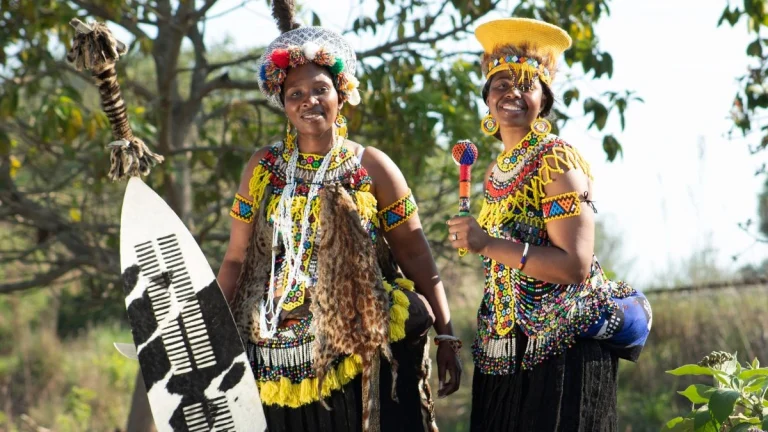South Africa’s Heritage Day is a vibrant celebration of the country’s remarkable cultural diversity. For women, dressing up in traditional attire is a powerful way to honour ancestry and showcase the beauty of South African heritage.
Thank you for reading this post, don't forget to subscribe!Each ethnic group has unique clothing styles, colours, and accessories filled with meaning. Whether attending a festival, family gathering, or community event, dressing traditionally this Heritage Day brings history and identity to life. Here are some inspiring dress-up ideas and cultural insights for South African women.
RELEVANT ARTICLE: Top 15 Heritage Day Dress Ideas
Table of contents
- Zulu: Proud Symbols of Respect and Strength
- Xhosa: Embody the Spirit of Grace and Tradition
- Ndebele: A Burst of Colour and Creativity
- Venda: Spirituality Woven Into Fabric
- Tsonga: Celebrating Dance and Movement
- Tswana: Bold and Beautiful
- Sotho: The Warmth of Tradition
- Swazi: Ceremony and Symbolism
- Pedi: Bright Colours and Heritage Pride
- Styling Tips for Heritage Day
- Celebrating Heritage Day
Zulu: Proud Symbols of Respect and Strength
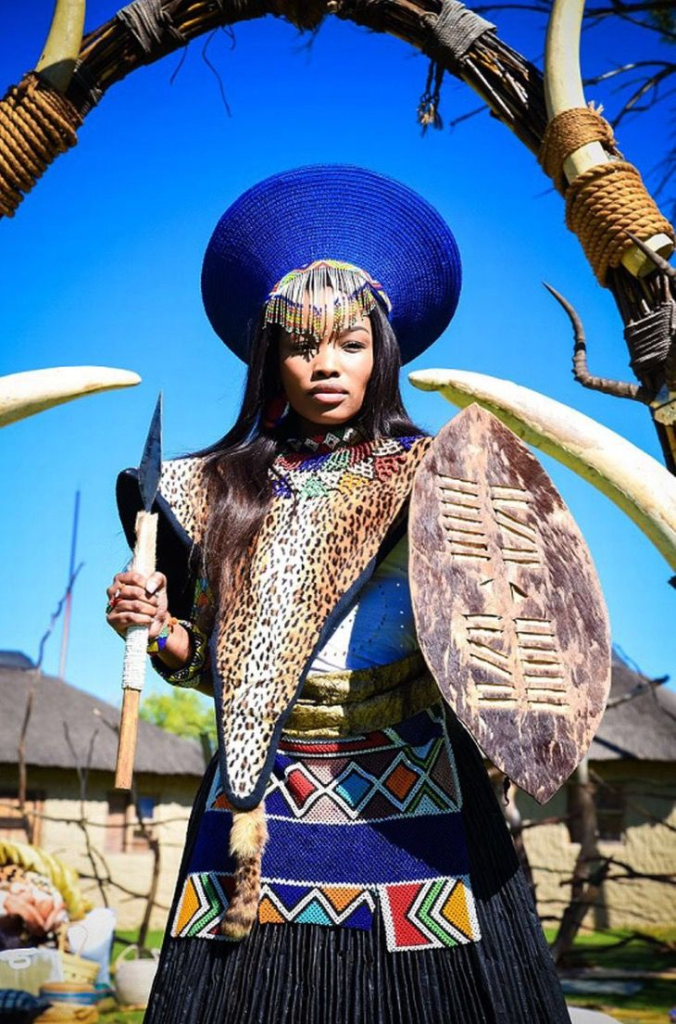
Married Zulu women traditionally wear the isicholo, a broad, disc-shaped hat symbolising respect towards their husbands and family. This is paired with the isidwaba, a softened cowhide skirt that marks marital status and womanhood. The vivid beadwork women adorn reflects social roles, achievements, and community belonging. The ensemble is a profound cultural expression, representing dignity, strength, and the wearer’s place within Zulu society.
Xhosa: Embody the Spirit of Grace and Tradition
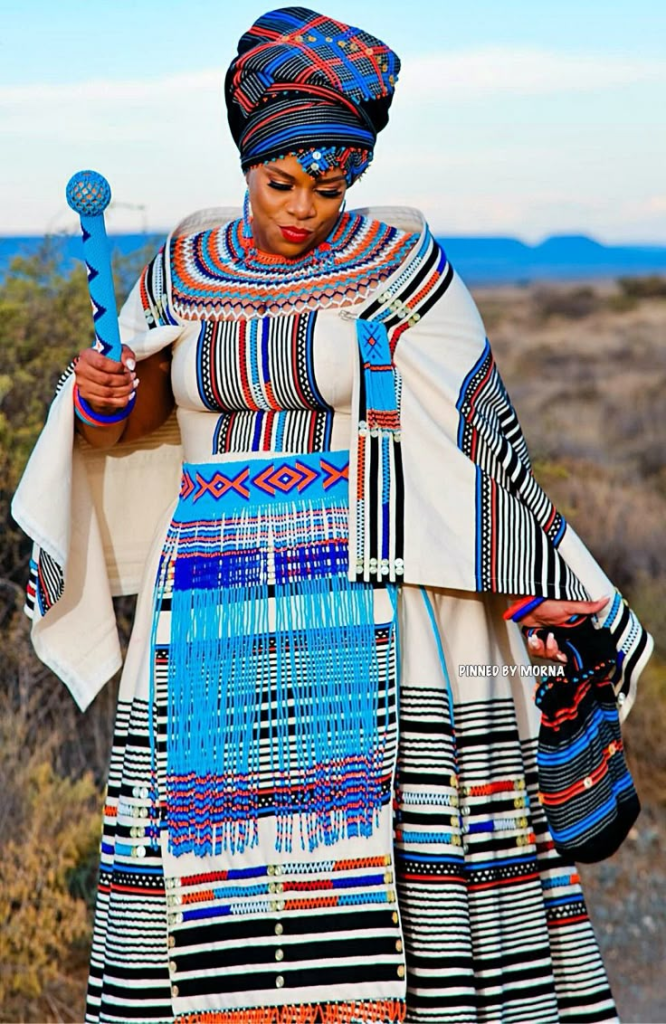
Xhosa women wear the umbhaco, a long skirt paired with an apron, crafted from beautifully printed or embroidered fabrics. Adorned with colourful bead necklaces called ithumbu, this attire symbolises respect for elders and ancestors. The beadwork’s intricate patterns convey social status and family heritage. Complementary iqhiya headscarves, traditionally worn by married women, complete the look, representing modesty and reverence. Wearing the umbhaco honours a rich oral tradition celebrated worldwide, exemplified by figures like Nelson Mandela.
Ndebele: A Burst of Colour and Creativity
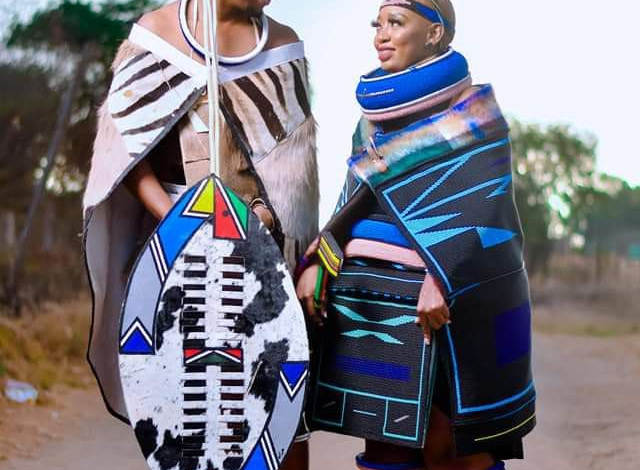
Ndebele women’s attire is noted for vibrant beadwork and geometric designs. The signature idzila, beaded necklaces, armlets, and legbands, accentuate the cultural narrative through art and symbolism. Married women wear elaborately decorated aprons made from hardened skin, while headbands known as amacubi celebrate tribal identity and artistic heritage. The colourful umbalo blanket is another distinctive element worn during ceremonies, communicating unity and ancestral pride.
Venda: Spirituality Woven Into Fabric
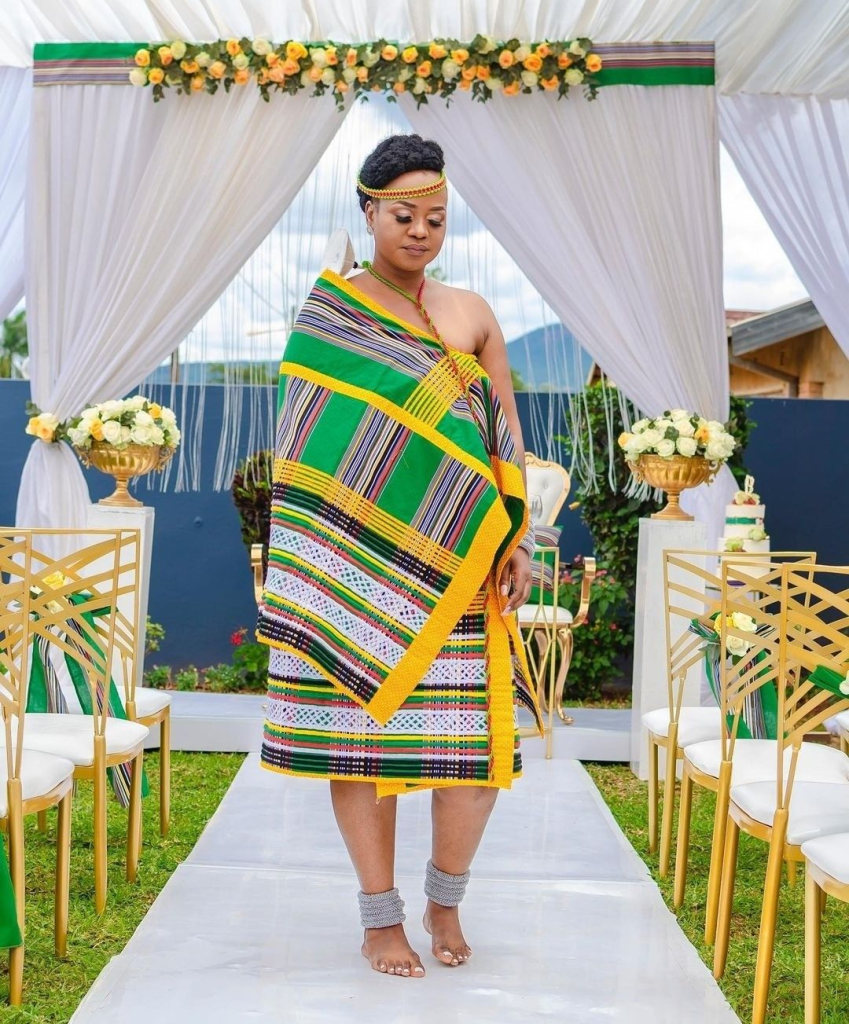
Venda women wear the Munwenda, a striking multi-coloured striped cloth fashioned into a two-piece outfit. This attire symbolises harmony with nature and respect for ancestors, often paired with unique beadwork such as Lutomola tsie (necklaces) and Makunda (headpieces). Venda clothing reflects spiritual beliefs, integrating ritualistic significance with artistic expression. Wearing this traditional dress embodies the deep cultural values preserved through generations.
Tsonga: Celebrating Dance and Movement
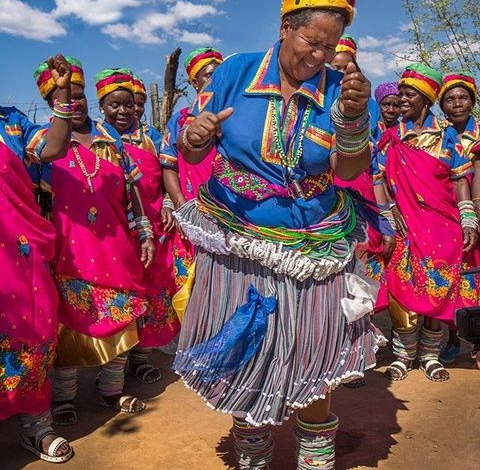
The Xibelani skirt is central to Tsonga women’s traditional dress. The Xibelani accentuates dance movements with its vibrant fabric. Women wear it knee-length, paired with a yele top. The rhythmic swishing sound the skirt produces during dances highlights the Tsonga culture’s love for music, celebration, and community spirit. Dressing in xibelani is a joyful expression of identity and cultural pride.
Tswana: Bold and Beautiful
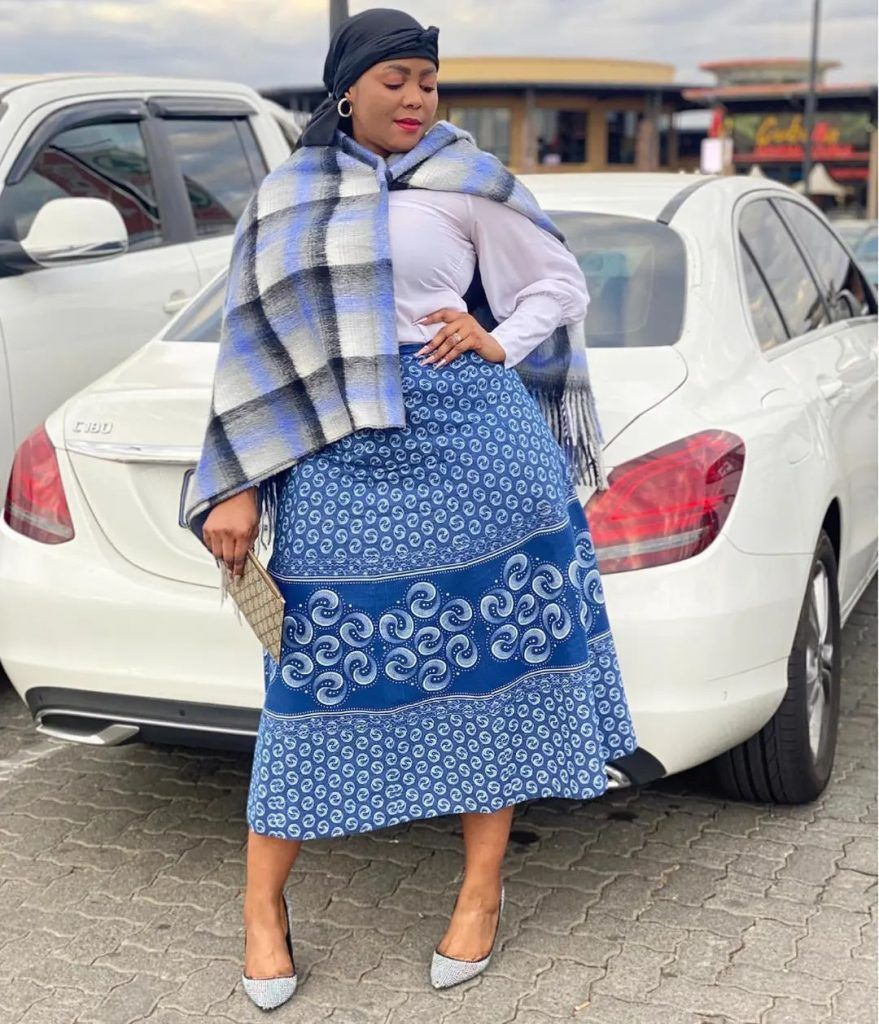
Tswana women traditionally wear the mosese skirt with the layered khiba apron, showcasing elegant folds symbolising womanhood and community respect. Accessories such as beaded necklaces and intricately designed hats enhance the look, reflecting deep-rooted cultural identity. Bright, bold colours and patterns encapsulate heritage and are regularly seen at cultural festivals and important ceremonies.
Sotho: The Warmth of Tradition
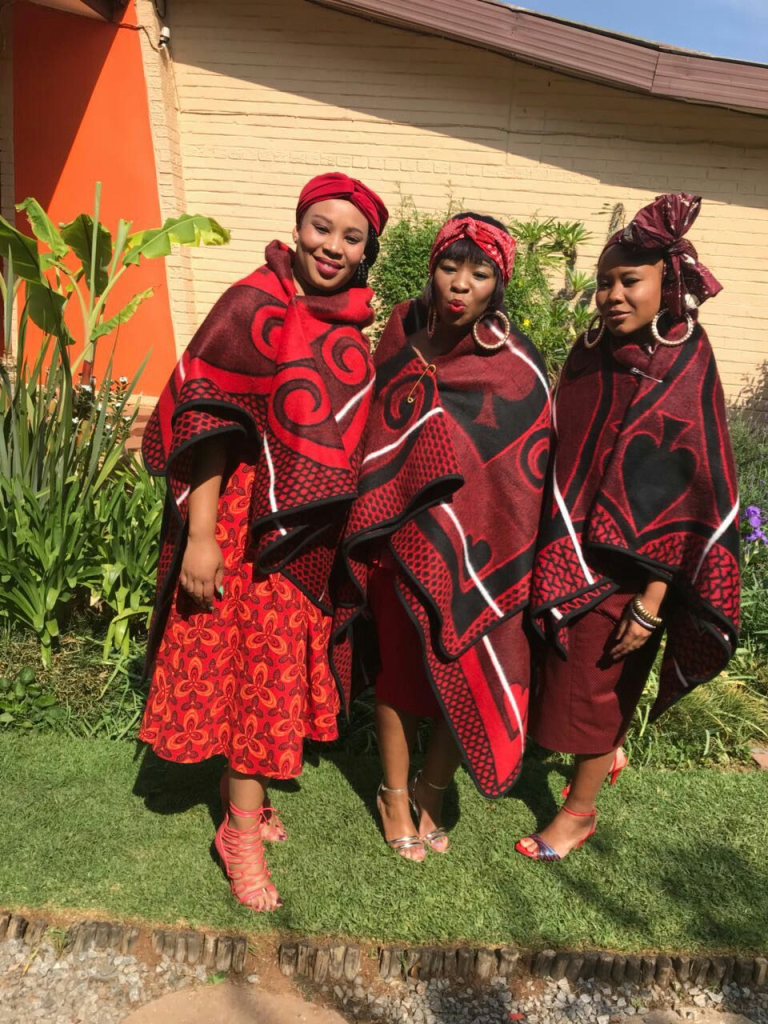
Basotho women wear garments made from Seshoeshoe fabric, which stands out with its distinct patterns and colours. The essential Basotho blanket, draped over the shoulders as a shawl, signifies protection, community unity, and social status. This blanket features motifs telling stories of history and family lineage. It is worn with immense pride during traditional ceremonies and on Heritage Day.
Swazi: Ceremony and Symbolism
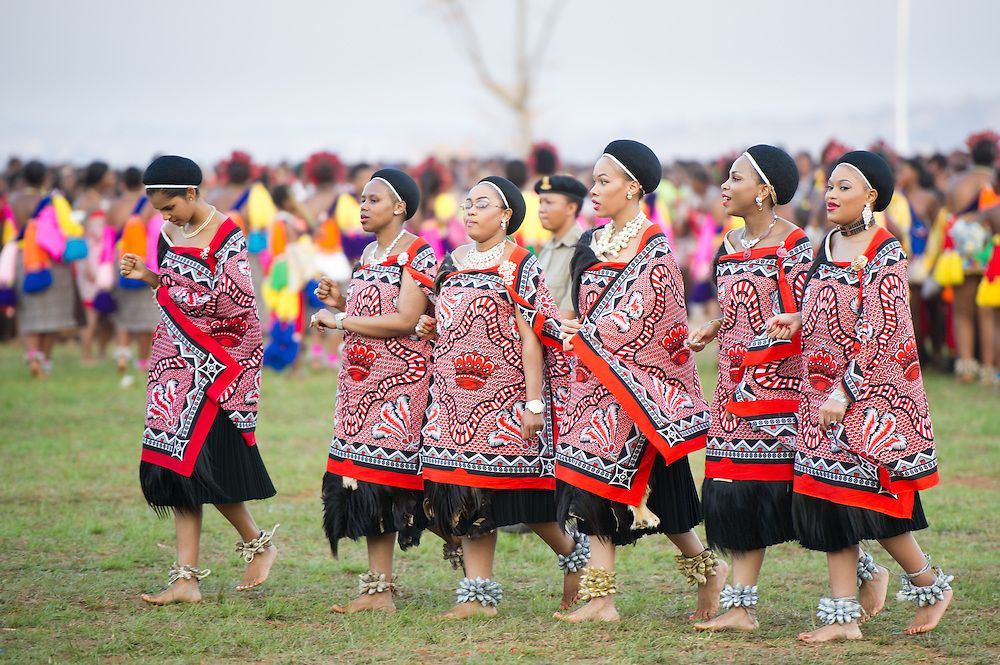
Swazi traditional attire varies by age and status. Married women commonly pleated cow hide skirts. The vibrant Lihiya, draped over one shoulder, is a staple piece. The Swazi attire features percussion, emafahlawane are the rattling ankle adornments. Swazi clothing is deeply connected with rituals such as the Umhlanga Reed Dance, reflecting respect for tradition, beauty, and social customs.
Pedi: Bright Colours and Heritage Pride
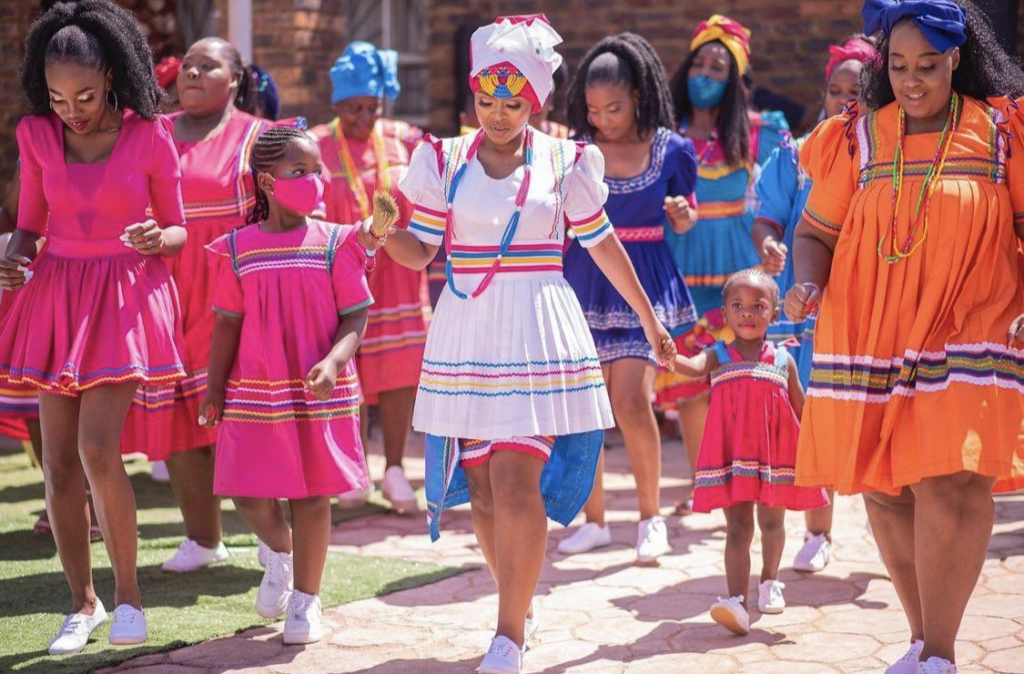
Pedi women’s traditional dress features bright colours and detailed beadwork symbolising lineage, social standing, and accomplishments. The outfits are adorned with ornaments that carry meaning during ceremonies and cultural events. Pedi clothing preserves oral and artistic traditions, embodying history, pride, and identity through vibrant patterns and crafted designs.
CHECK OUT: 30 Stylish Heritage Day Outfit Ideas for 2025
Styling Tips for Heritage Day
- Accessorise with Meaning: Select traditional beadwork, necklaces, headbands, and bracelets that tell personal or cultural stories.
- Comfort Matters: Choose breathable, natural fabrics and comfortable footwear suitable for walking or dancing during festivals.
- Respect the Tradition: Understand the significance of each clothing item and wear it with honour and pride.
- Blend Modern and Traditional: Combine traditional accessories or fabrics with contemporary fashion for a stylish yet authentic look.
- Seek Inspiration: Consult family elders or community members to learn about authentic traditional styles and their stories.
ALSO READ: Heritage Day Outfit Ideas For Men: Celebrate South Africa’s Cultures in Style
Celebrating Heritage Day
Heritage Day is an ideal moment to celebrate South Africa’s cultural mosaic through clothing. Each traditional outfit represents a story of identity, pride, and unity. Dressing in traditional attire is a visual celebration and a heartfelt tribute to the nation’s rich heritage.




